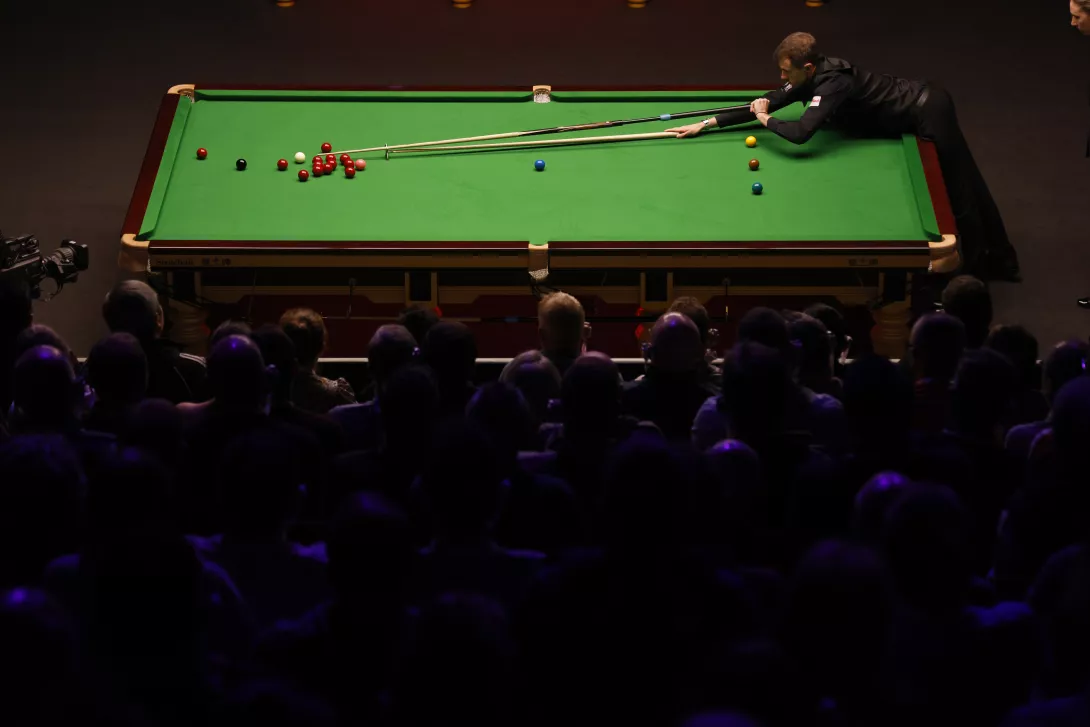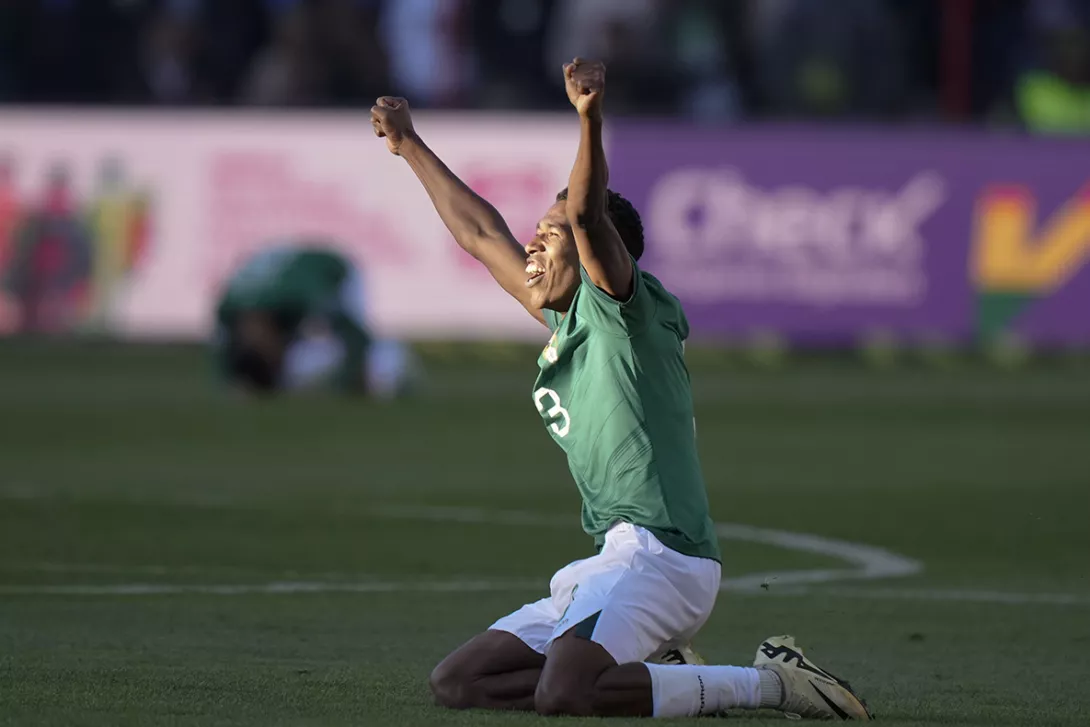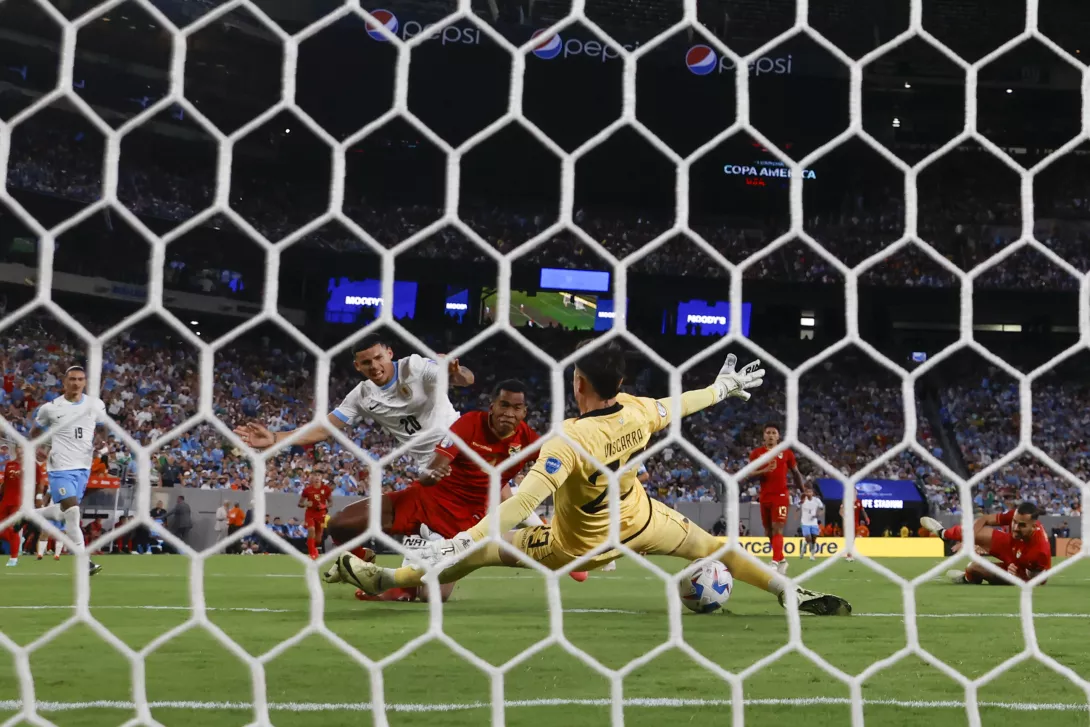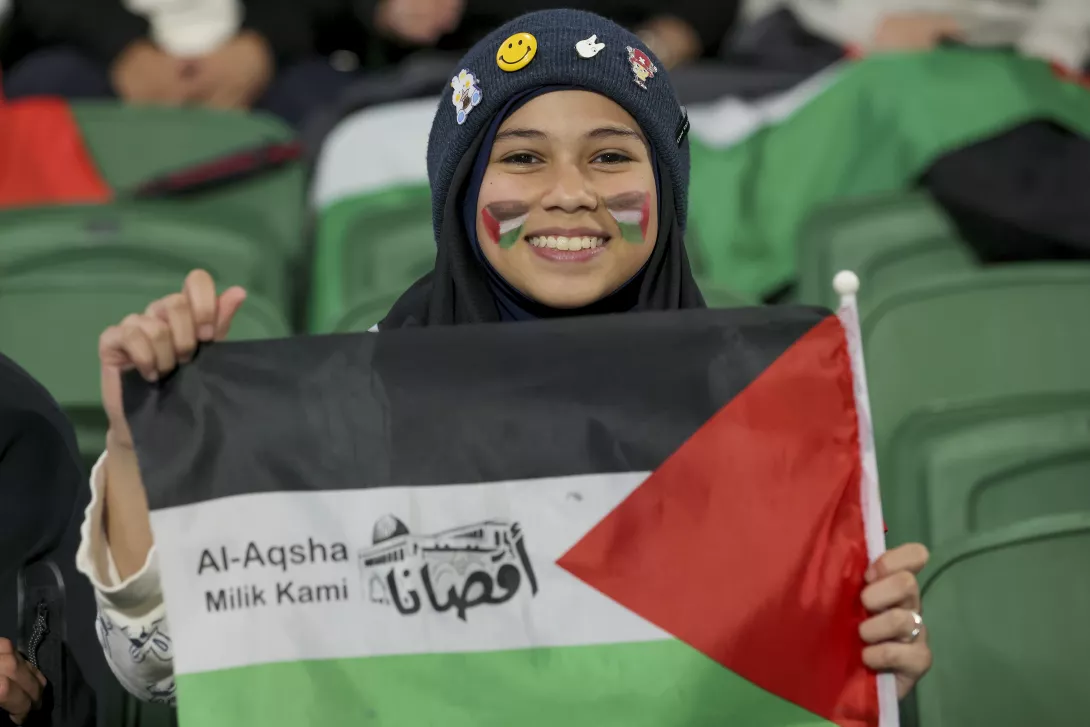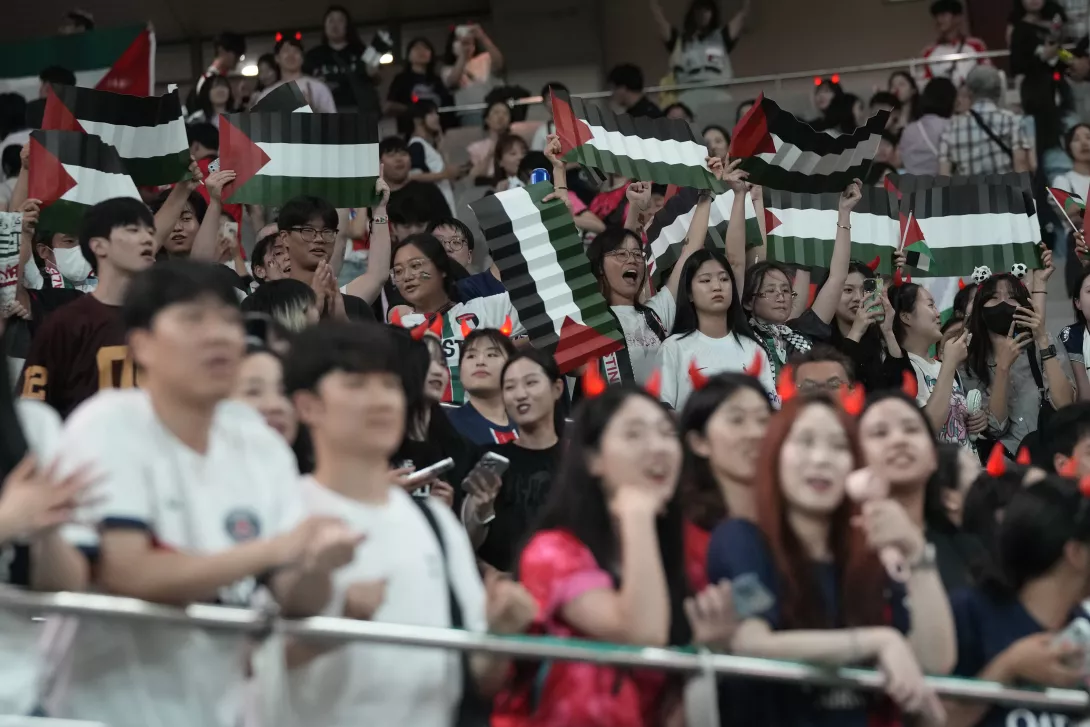
AFTER a short club break, football is back. As Premier League clubs deal with the shambles of profit and sustainability rules, selling players they don’t want to sell, buying players they don’t need, selling hotels to themselves and moving their accounting period to find loopholes, international football brings us stories of sporting, political, cultural, and geographical significance.
The standout story of the week was the Palestine national team’s draw with South Korea in Seoul. It is not an exaggeration to say that in the circumstances it was one of the biggest results in the nation’s history.
This is the first time Palestine have advanced past the second round of the Asian World Cup qualifiers, and they now have a genuine chance of reaching the 2026 World Cup.
Few would have expected anything other than a South Korea win in this Group B opener, but the Palestinians came away with a valuable point, one which other teams in the group are unlikely to get.
South Korea are the highest-ranked team in Palestine’s group and holding them to 0-0 in the away game is a massive result.
The top two teams in the six-team group will qualify automatically for the World Cup, while the third and fourth-placed teams will go through to a fourth round of qualifying.
Palestine head coach Makram Daboub says their aim is to finish in the top four, and this result in Seoul, though only a draw, will give them huge belief.
They could even have snatched a win late on when Wessam Abou Ali was through on goal, but his shot was saved by Jo Hyeon-woo.
Palestine’s achievements are made all the more remarkable by the circumstances.
Football in Palestine has been destroyed by the ongoing Israel attacks on Gaza, where one of the national team stadiums has been bombed and rendered unusable. Palestinian domestic football has been halted, meaning some players in the national team squad are still without clubs.
Palestine have had to play all of their home games during World Cup qualifying in neutral venues, mostly in Kuwait but also in Qatar. Its upcoming game against Jordan on Tuesday will be played in Malaysia.
In the grand scheme of things, the difficulties faced by a national football team in its preparation for games are insignificant, but everything is linked and the team’s presence in these high-profile matches raises awareness of the atrocities back home.
During Thursday’s game, South Korean fans unfurled a large Palestine flag in one of the stands, and solidarity with Palestine could be seen throughout the stadium in Seoul.
One supporter held a sign saying he hopes Palestine and South Korea qualify for the World Cup.
Such shows of solidarity have been effectively banned in top-level club football where several leagues have prohibited the flying of flags unrelated to the team.
Football also reminds us that Israel’s attacks and restrictions on Palestinians are not new.
For decades, Palestinian players at the international and club levels have encountered issues.
The 2019 Palestine equivalent of the FA Cup final between the winners of the Gaza Strip Cup and West Bank Cup caught brief international attention when players from Gaza-based finalist Khadamat Rafah were denied travel by Israel to the West Bank, which Israel illegally occupies.
It meant the second leg of the final against Markaz Balata could not be played and was eventually cancelled.
One of Palestine’s national stadiums in Gaza has regularly been bombed by Israel, having to be rebuilt several times after attacks dating back to 2006. It was rebuilt with help from Fifa before being bombed again in 2012, rebuilt again, and then flattened in 2023 during Israel’s destruction of Gaza City.
There are still hopes that some games in World Cup qualifying will be played at the Faisal Al-Husseini Stadium in Al-Ram in the West Bank, but federations and governing bodies have expressed concerns around travel access, not dissimilar to the issues seen at the 2019 Palestine Cup final.
Elsewhere in international football, there was another upset in Asian World Cup qualifying as Bahrain came away from their match with Australia in the Gold Coast with a 1-0 win.
Japan are the highest-ranked nation in that group and the region as a whole, and they strolled to a 7-0 win against China, but Australia’s defeat opened up the race for the second qualification spot in Group C.
In Europe, San Marino won a competitive match for the first time, defeating Liechtenstein 1-0 in the Nations League.
In South America, the lowest-ranked team in Conmebol World Cup qualifying, Bolivia, romped to an altitude-assisted 4-0 win against Venezuela at over 13,000 feet above sea level in El Alto.
Bolivia are one of the prime examples of a national team using their geographical situation to their advantage. They recently moved their home stadium from the heights of La Paz at a mere 12,000ft to El Alto, which is the highest major city in the world.
While opposition players struggle with the thin air, Bolivian players send the ball flying into the goal as if it were weightless. Meanwhile, they have not won a competitive game outside Bolivia since 2015.
There were plenty of other results of note, including Angola’s defeat of Ghana in 2025 Afcon qualifying, but sadly it won’t be long before international football is once again interrupted by a break for top-level club football and all the shenanigans that surround it.

